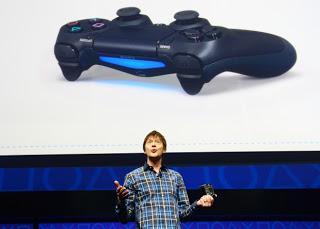 So we've now had a little while to mull over the recent announcement of the Playstation 4, and the results are in. From the gamer crowd, a rather resounding "Meh" across the board. Though Sony certainly unveiled some interesting features, especially on the social media side of things, the announcement as a whole failed to capture the imagination. That, and not showing us the console itself failed to at least distract us with a shiny new box with pretty lights(works on me every time). So yes, the reception for the Playstation 4 was lukewarm at best. Say what you will about saving content for E3, or wanting to release details over time, but that was the Playstation 4 launch conference, and their first impression was a touch lackluster.
So we've now had a little while to mull over the recent announcement of the Playstation 4, and the results are in. From the gamer crowd, a rather resounding "Meh" across the board. Though Sony certainly unveiled some interesting features, especially on the social media side of things, the announcement as a whole failed to capture the imagination. That, and not showing us the console itself failed to at least distract us with a shiny new box with pretty lights(works on me every time). So yes, the reception for the Playstation 4 was lukewarm at best. Say what you will about saving content for E3, or wanting to release details over time, but that was the Playstation 4 launch conference, and their first impression was a touch lackluster.So what are the keys to successfully launching a new console? Well, looking at the mistakes and successes made by console manufacturers over the years, there are a few points that a console manufacturer needs to nail in order to build that hype.
It's About Games!
Yes, shocking, I know. This is the point that I find the most obvious, but is easily the one most often missed by game developers. The launch of a video game console is about video games. Though I'm sufficiently impressed with the amount of hardware you've crammed into your box, the question boils down to how all that hardware is going to improve my experience. All those social media, sharing and interface improvements? Those are certainly icing on the cake, but we need the cake too, please.Yes, I do know the difficulties involved in demoing games for a console that doesn't exist yet. I'm not really expecting a ton of finished gameplay footage. But what I did need was a whole lot more than "Another Killzone", "A Driving Game" and "A Platformer". We have those games now, I need just a bit more than a layer of varnish on top of existing ideas.
Better Yet, It's About "the" Game
If there is one thing that every good console launch needs, its a game to bet the farm on. You need at least one strong, first party(or reputable third party title) available at launch, otherwise you are going to notice a significant drop in those out-of-the-gate sales. This has to be a game that people will purchase the console to play, the game everyone will pick up with their first console.But once again, Sony doesn't. Two of their top billed games are yet another Killzone rendition(reminiscent of the Playstation 3 launch) and Knack, an in-house title that was un-memorable enough that I had to dig through launch announcements to remember the name.
Though not having 'the game' is not indicative of how good the console will be over its lifetime, it has a profound impact on how easily you can reel in your early adopters.
The Distinguishing Factor
What is the feature, the mechanic, the process that makes your console so radically different and better for the consumer than any other product out there? That is what a manufacturer needs to capture in the early moments of their launch, they need to instill the feeling that the consumer needs this console. A large portion of this conference was dedicated to hardware, which certainly makes the console better for developers. In a roundabout way, that will end up being good for consumers too, but not in a way that immediately resonates with the buyer. Sony came close with its social media tools integrated into the console, but such a feature is always going to be a sideshow in the users mind.And unfortunately, Sony didn't seem to have a main attraction.
And Above All Else, Why?
There is a phenomenal TED talk that I watched recently in which Simon Sinek demonstrates how great leaders inspire actions, and how the same is true in companies. He affirms that people don't buy what you do, they buy why you do it. This is why some arguably good products end up unsuccessful, and others that are worse fly off the shelves. It's because they believe what the company believes. Why did the Nintendo Wii sell so quickly, even though there was little to prove its concept from the gate? Because they believed about bringing video games to the family, to make video games more accessible. And many people who shared that belief jumped right on board.So above all else, at launch, a manufacturer needs to answer the question...why? What do you believe in that drives your practices and decisions? You need to strike at something deeper within consumers, something beyond the rational and logical. It simply needs to feel right.
How do you do that? Well, if I knew, I would be much, much wealthier...

